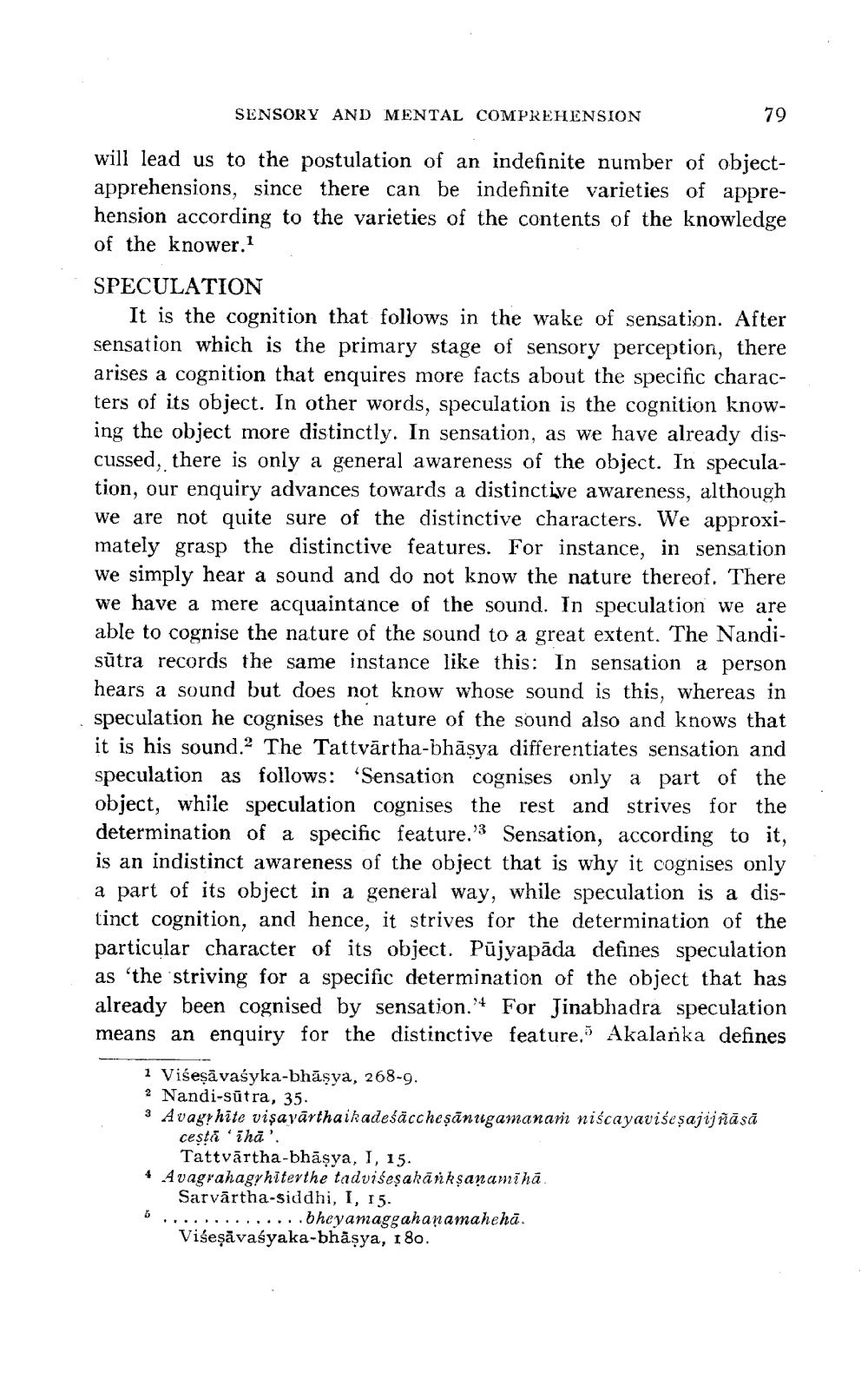________________
SENSORY AND MENTAL COMPREHENSION
79
will lead us to the postulation of an indefinite number of objectapprehensions, since there can be indefinite varieties of apprehension according to the varieties of the contents of the knowledge of the knower. SPECULATION
It is the cognition that follows in the wake of sensation. After sensation which is the primary stage of sensory perception, there arises a cognition that enquires more facts about the specific characters of its object. In other words, speculation is the cognition knowing the object more distinctly. In sensation, as we have already discussed, there is only a general awareness of the object. In speculation, our enquiry advances towards a distinctive awareness, although we are not quite sure of the distinctive characters. We approximately grasp the distinctive features. For instance, in sensation we simply hear a sound and do not know the nature thereof. There we have a mere acquaintance of the sound. In speculation we are able to cognise the nature of the sound to a great extent. The Nandisutra records the same instance like this: In sensation a person hears a sound but does not know whose sound is this, whereas in speculation he cognises the nature of the sound also and knows that it is his sound.2 The Tattvārtha-bhāşya differentiates sensation and speculation as follows: Sensation cognises only a part of the object, while speculation cognises the rest and strives for the determination of a specific feature.'3 Sensation, according to it, is an indistinct awareness of the object that is why it cognises only a part of its object in a general way, while speculation is a distinct cognition, and hence, it strives for the determination of the particular character of its object. Pūjyapāda defines speculation as 'the striving for a specific determination of the object that has already been cognised by sensation.4 For Tinabhadra speculation means an enquiry for the distinctive feature, Akalarka defines
1 Višeşāvašyka-bhāsya, 268-9. 2 Nandi-sūtra, 35. 3 Avagy hite visavārthaikadeśaccheşānugamanan niscayavise șajijñāsā
cesta 'Thā'.
Tattvārtha-bhāşya, 1, 15. + Avagrahagy hiterthe tadvisesakan kşanamiha Sarvārtha-siddhi, I, 15.
........bheyamaggahanamahehā. Višeşāvaśyaka-bhāşya, 180.




